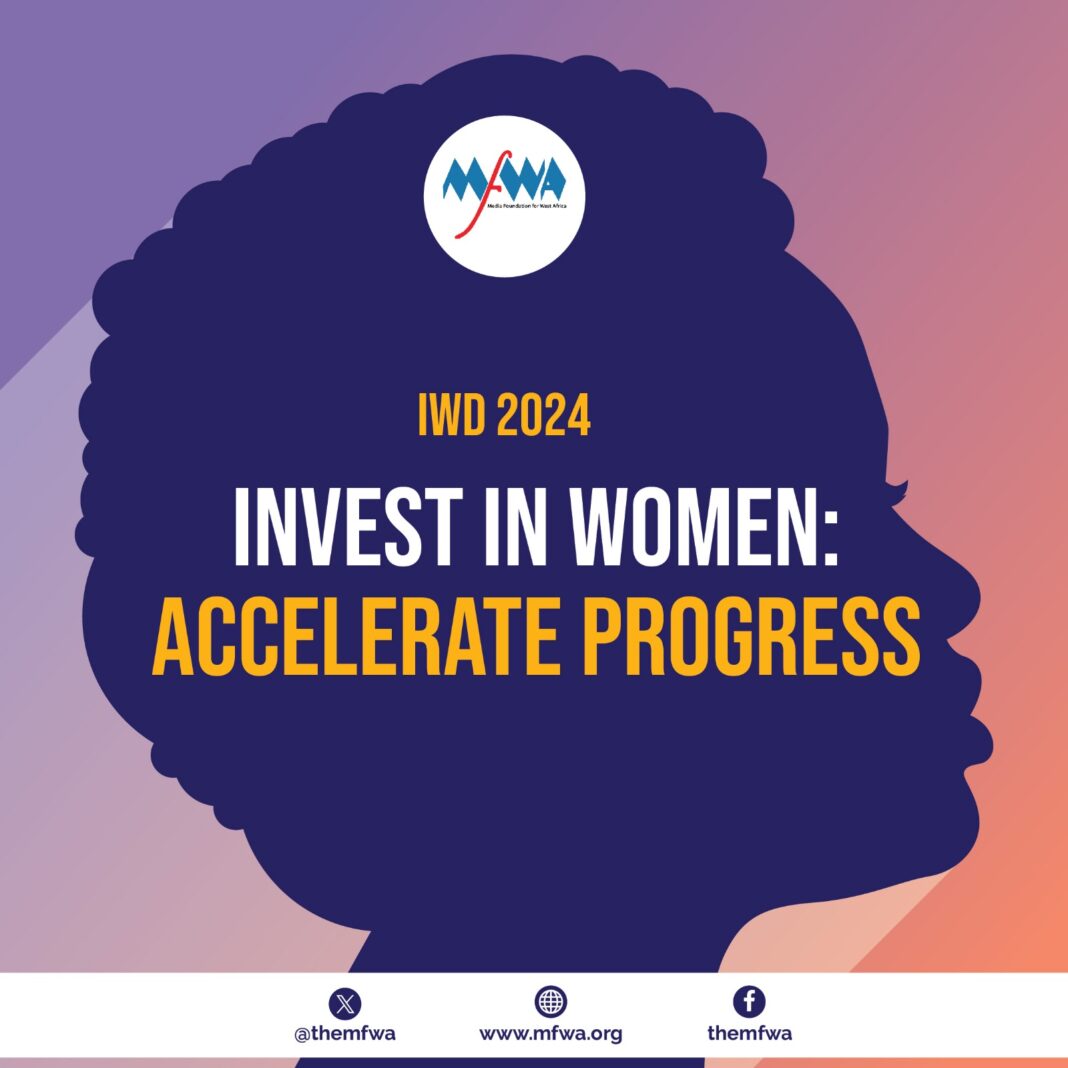Globally, research shows that more women, than men, enrol into journalism schools and move on to pursue careers in the journalism vocation. However, it is their male counterparts who dominate senior editorial and managerial positions in many media organisations. This state of gender disparity within newsrooms, is partly what accounts for the dominant masculine news values that tilt media content in favour of men’s issues to the relegation of women’s issues.
The factors that continue to drive this gender disparity remain largely similar but tend to be nuanced under the influence of socio-cultural factors that differ from one region of the world to another. In West Africa, the drivers remain deeply ingrained cultural stereotypes that position women as better suited for more docile roles in newsrooms.
For instance, as research shows, there is a widespread perception that women are better suited for glamorous news anchoring roles, rather than investigative journalism duties. And in television, women tend to have their value measured more in terms of their physical looks and appearance than skill and qualification, the research reported.
But these stereotypes are really, just what they are – stereotypes; because in spite of all of these barriers, women journalists keep proving themselves very capable of the demands of journalism, irrespective of variety or style. And for the few female journalists who have broken through the glass ceiling to occupy editorial and managerial roles of media organisations, their stories and triumphs remain compelling examples; this is whether it is Ifeyinwa Omowole, Editor-in-chief of the Nigeria News Agency, Khadija Patel, chairperson of the International Press Institute and former editor-in-chief of the Mail & Guardian, or Jamila Akweley Okertchiri, first female editor of the Daily Guide newspaper in Ghana.
On the occasion of the International Women’s Day, the theme – ‘Invest in Women: Accelerate Progress,’ is a fitting call to action. For stakeholders in media, it provides stimulus to advance activism that confronts the existing gendered stereotypes that antagonise women in newsrooms. This call to action invites stakeholders to once more galvanize and make another push for the cause to achieve newsrooms that offer equal career opportunities to women, just as it offers to men.
This is not to imply that there has been lack of activism and progress in the fight for gender equity in newsrooms in West Africa; many stakeholders have long been at work confronting gender disparity by means of various strategies. At the Media Foundation for West Africa (MFWA), for instance, the strategies have included various forms of journalism training programmes in which a standard requirement is that at least 40% of the beneficiaries are female. An example of an empowerment programme in which this requirement is applied is the MFWA’s Next Generation Investigative Journalism (NGIJ) Fellowship.
In addition, the MFWA also undertakes regular training programmes on issues such as fact-checking, data journalism and mobile journalism for beneficiaries, 40% of whom must be women.
But even with interventions such as those by the MFWA, room still remains for a lot more to be done. West African governments have been particularly notorious for being slow adopters of gender equity policies and even where they do adopt such, implementation is often shambolic. As research has long confirmed that women catalyse development, these lackadaisical attitudes by governments must change in all regards, including, in the adoption and implementation of policies that create equity for women in all contours of the macro and micro economic value chain.
Governments should not only implement gender equity policies but should be seen to be doing so as such actions on the part of governments are powerful for conscientizing citizens on the need for gender equity.
Civil society is definitely to be commended for the years of investment in, and activism for gender parity in West Africa, but the theme for this year’s commemoration of International Women’s Day is a further call on CSOs to not fall back but to renew commitment to the cause of gender equity.
For media organisations, this commemoration should galvanize resolve to intentionally make newsrooms more equitable, while for women journalists themselves, the challenge is to assert their value as journalists who are as capable as their male counterparts.
Meanwhile, the call to action should also be seen as a challenge to ECOWAS to do more for the enhancement of women’s rights. In this regard, a more aggressive fostering of the ECOWAS Treaty for gender equality, under Article 63, is imperative.





